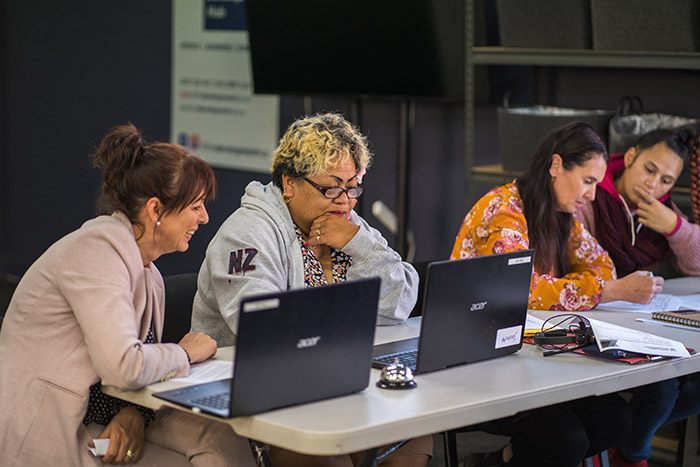Pou 5 – Work ready job seekers
Ngā Kairapu Mahi e rite ana ki te Mahi
On this page

Gaining a better understanding of who is work ready and willing to work will maximise the opportunity for employers to target this cohort when recruiting. Connecting these jobseekers to the right employer is key, as this offers the job seeker opportunities to upskill in their preferred industry. Conversations with stakeholders indicate that pastoral support for these job seekers is the biggest influence to determining their success in their role.
Job seekers that receive quality wraparound support and mentoring have greater employment success. Stakeholder engagement has identified that most employers are willing to provide the support and the training to teach the job seeker the skills they need for the role. However, it is reported that finding someone who is reliable and willing to do the mahi is the issue.
The RSLG encourages a wider use of te ao Māori approaches to support whānau centred solutions to engaging with employment. Facilitating meaningful connections to whakapapa and whenua may provide some insights to understanding the barriers that prevent people from entering the workforce and pursuing careers.
The Ministry of Social Development (MSD) offers extensive support for work ready job seekers and provides them with the support required to help them into the workforce. Wairoa Young Achievers Trust is a provider of youth services, contracted by MSD to deliver the Youth Parent Payment and Youth Payment, support for NEETs (Not in education, employment or training), He Poutama Rangatahi and Mayors Taskforce for Jobs to 16-24 year olds in Wairoa. With a focus on driver licences, training to employment and apprenticeships, they are a one stop shop for youth who need support.
Case Study – Work ready job seekers
Mātai Take – Kairapu Mahi e rite ana ki te Mahi
The following case study highlights the journey of one wāhine and her transition off the Work Ready Job Seeker benefit.
As a single mother in Central Hawke’s Bay this wāhine started receiving the Sole Parent Support (SPS) as she had to stop working to look after her unwell tamariki.
She was a determined job seeker who worked with her case manager who helped understand her situation, provide advice and support when applying for jobs. “My case manager went above and beyond to support me, but this isn’t always the case with other case managers”.
With support from her case manager, she was able to secure a full-time job. The need for good transition advice when moving from benefit into employment and knowing upfront what additional financial support she was entitled to helped with balancing her mahi and care for her tamariki. Support from her employer and manager also made a big difference with helping her transition into employment as she said they are understanding of her whānau responsibilities. “It is important to have the right manager at work – mine is a huge help and it helps she’s a mum too as she understands what it can be like to juggle everything.

